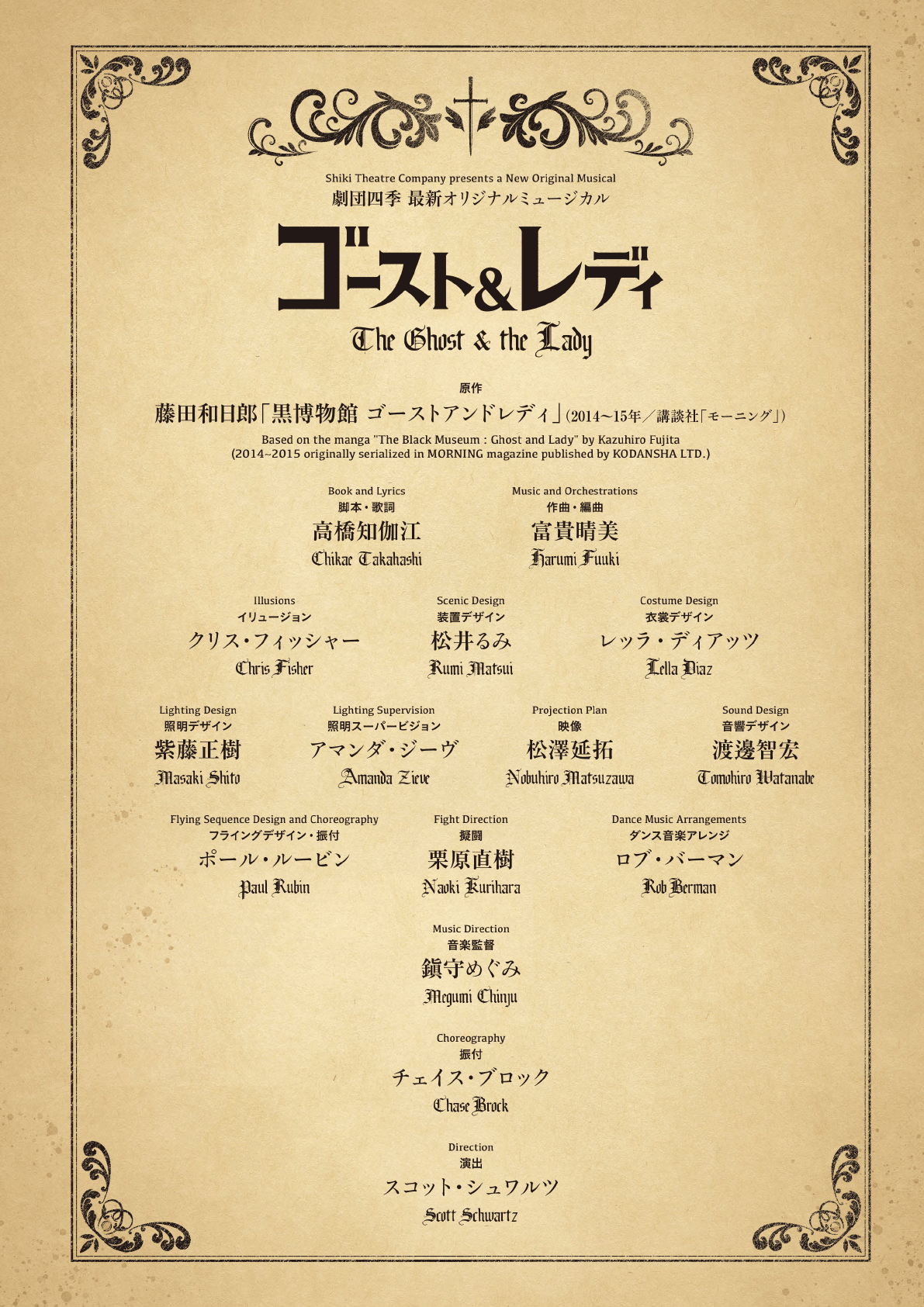It is the 19th century. At the Drury Lane Theatre in London, there was a famous theatre ghost, known as “The Man in Grey = Gray.” It was said that whenever he appeared in the audience, the play would become a success for certain.
One day, a lady appears in front of him and begs him to kill her. Her name is Florence Nightingale (Flo). While believing that her mission is to pursue a career in nursing, Flo had not been able to resist the society’s tendency to despise nurses as a lowly profession or the opposition from her family; she had lost sight of the meaning of her own life and was desiring death. Having much love for the theatre, Gray takes an interest in her, and accepts her wish on the condition that he kills Flo at the time when she falls into the depths of despair so that he may become the star in this tragedy.
After bracing herself for death as a result of her deal with Gray, Flo becomes determined to push forward with her career in nursing. As the two begin to spend their time together, they go to the Scutari Military Field Hospital which accommodated wounded soldiers from the Crimean War. There, Flo is met with strong opposition from the military, who did not allow women to nurse, but she uses all her strength and wisdom to overcome numerous difficulties, as well as the despair that Gray expects of her, and begins to pursue her own ideals. Gray, fascinated by Flo's passion, gradually starts to give her a hand, and before long the two find themselves bounded by a curious bond.
Progress is made on improving the Scutari Military Field Hospital, and Flo comes to be known as the “Angel of Crimea.” However, there were some people who did not think favorably of her success. One of them is John Hall, the Medical Officer in charge of the Military Field Hospital. As Flo succeeds and Hall is put on the verge of losing his own position that he had worked desperately to build up, he plots to murder her and gives a command to a certain someone.
That someone also happens to be a ghost just like Gray, and...











